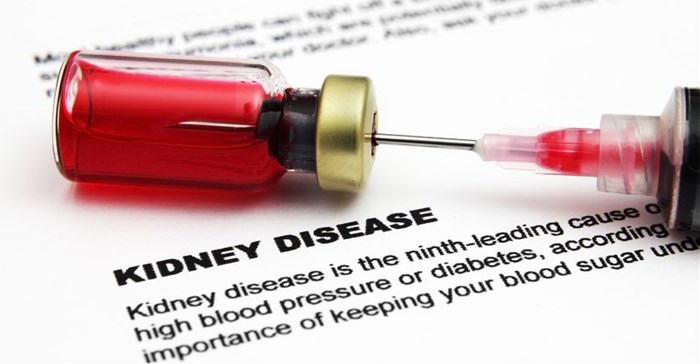
“Each week, the equivalent of two planeloads of South African lives are lost because of lack of access to renal replacement treatment,” says Prof. Moosa, who heads the Department of Medicine at Stellenbosch University’s Faculty of Medicine and Health Sciences (FMHS), in an editorial published in a recent issue of the "South African Medical Journal" (SAMJ).
The SAMJ article summarises the discussions between the National Department of Health (NDoH) and other stakeholders at a national summit on renal health in South Africa.
In the article, Prof.Moosa, a member of the Ministerial Advisory Committee on Transplantation, and his co-authors, discuss the challenges faced by renal patients in South Africa. These include:
Chronic kidney disease (CKD) is often the end-result of any number of lifestyle related diseases such as hypertension and type 2 diabetes, with the former predicted to increase by 70% by 2025, and the latter by 88% by 2030.
“The diabetes epidemic is driven by our sedentary lifestyle and poor nutritional choices that contribute to a much larger challenge facing our society – obesity. Almost 70% of SA women are overweight or obese; of even greater concern is that over 25% of girls are also overweight or obese,” he says.
Prof. Moosa believes that if the government sticks to one of the National Development Plan – 2030 objectives, namely managing preventable diseases, it will ultimately have a beneficial effect on CKD.
“Community-based screening for CKD is not cost-effective, but hig-risk patients – mainly those with diabetes and hypertension – would benefit from strategies that reduce the risk of developing, and retard progression to, end-stage kidney disease (ESKD). Such an initiative could be driven by health workers in primary care,” Prof Moosa explains.
“Appeals from clinicians to health authorities for greater access to treatment have been met with the usual refrain that resources are insufficient – an explanation that is particularly disappointing in face of funds being diverted from the national fiscus to a range of expenditures that benefit the citizenry not at all.”.
“We are presenting the National Department of Health with a well-considered and workable blueprint for addressing the crisis of CKD and its treatment. As patient advocates who have to manage the crisis, we challenge the government to work with us to improve care for patients with CKD. Every time one of our patients dies, it is an indictment on us all,” he concludes.